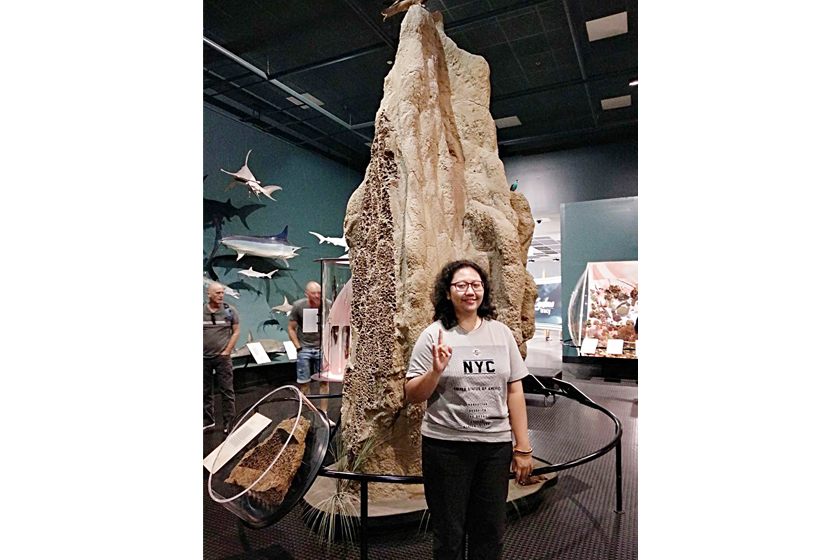Dr Theresia Nina Noviriana and the tuberculosis eradication team in Timika, Papua, have deployed a novel solution to raise awareness of the disease successfully; ensure more patients access treatment and lift the rate of patients completing their treatment to more than 70%.
World Tuberculosis Day is commemorated each year on March 24, the date in 1882 when Dr Robert Koch announced his discovery that Mycobacterium tuberculosis as the cause of this disease which mainly affects the lungs.
Known as TB, the airborne disease is both curable and preventable and is endemic in Indonesia. The country ranks third amongst the top 30 countries with the highest burden of TB and fifth for multidrug-resistant TB.
Theresia has spent most of her medical career in Papua, Indonesia. She first started caring for TB and HIV patients as a doctor at a mission hospital in Jayapura, and was also a non-permanent employee at the Workwana Clinic in Keerom Regency. As part of the Voluntary Counselling and Testing team, Theresia and HIV care providers received government support through various training sessions.
In 2007-2008, the HIV prevalence in Papua was 2.4%, and people with HIV commonly have co-infection with TB. The high prevalence of TB in Papua was further compounded by local customs, multi-family housing and sanitation issues.
In 2018, Australia Awards in Indonesia offered an intensive two-week short course, “Tuberculosis: Prevention and Eradication,” jointly organised by the Menzies School of Health Research and the Burnet Institute. Both are two leading medical research institutes that also address life-affecting health issues in disadvantaged communities in Australia and abroad. In the meantime, Theresia had moved to Mitra Masyarakat Hospital, a private hospital funded by PT Freeport Indonesia and managed by the Diocese of Timika through the Caritas Timika Papua Foundation. She didn’t hesitate to seize this opportunity.
“The TB/HIV program was under my supervision as the hospital’s Deputy Medical Director. The situation in Timika was more complex than in Jayapura, though the partnership between the public and private sectors was strong. It was a challenge for the team, and the patient dropout rate was over 50% in 2018.
“I wanted to know how Australia and other developed countries enforce a strict TB prevention and control policy as well as learn to come up with an effective exit strategy for the disease. In Australia, we learned how to increase patient adherence, TB/HIV case management, TB prevention, drug-resistant TB treatment, as well as multi-disciplinary and out-of-the-box approaches to TB mitigation. Fellow course participants were other Indonesian health professionals, and we created a strong network which is still active today.”
Mitra Masyarakat Hospital, also known as Karitas hospital, serves seven tribal communities: the Amungme in the mountainous area; the Kamoro who live in the coastal area; as well as the Damal, Dani, Nduga, Moni, and Ekari/Mee.
“The communities consider the hospital as their hospital, where they go to get free medical care. They prefer to consult doctors at Karitas even though the hospital is a long commute, costing them time and money. All the while, they might have access to a community health centre (Puskesmas) much closer to home.”
Upon her return to Timika, Theresia, along with her colleague, Dr Siska – a team member who attended the same course later – and the TB/HIV team planned and implemented what they had learned, focusing their efforts on increasing compliance.
"We created mini-projects. We started with educational videos in four local languages: Amungmume, Kamoro, Dani and Paniai. These were played at the hospital.”
The videos – purposefully made with their target viewers in mind and in a context and language they understood – successfully raised public awareness about TB as well as the importance of completing the recommended course of treatment.
“To raise compliance, the TB team came up with a sticker project,” Theresia said. “Patients who took their medication and followed through with their treatment were given stickers.” The completed sticker collection created a colourful design. This proved to be a popular and effective incentive. The Alumni Grant Scheme, administered by Australia Awards Indonesia, then supported the initiative to be duplicated in other areas.
“My colleagues, Siska and Pasqaline, were also very caring toward their patients who felt that they received everything that a patient could wish for: good care, attention, the medication they needed, follow-up assessments. What we also hoped to accomplish was that those with complicated cases wouldn’t suddenly stop with their treatment.
"Our team also forged a strong partnership with the community health centres. We were able to persuade patients who have access to a reliable community health facility nearby to continue their treatment there, saving them time and money whilst ensuring compliance.”
The result of these efforts by Mitra Masyarakat Hospital’s TB eradication team are many: it has elevated public awareness of the disease; facilitated patient access to treatment; raised referrals to community health centres; and has propelled the treatment completion rate to over 70% in 2019. Patients with high multidrug-resistant TB are referred to the regional hospital.
On World Tuberculosis Day 2021, Indonesia committed to end TB by 2030. The Presidential Decree to End TB mandates the eradication of the disease as a development priority. Regional and sub-district heads are expected to mobilise resources to mitigate the disease, including strong public-private partnerships. While it won’t be easy, the government has recognised that tuberculosis is a multidimensional problem requiring multisectoral interventions, and its commitment and support are crucial.
A few months ago, Theresia moved to Labuan Bajo, East Nusa Tenggara, where she is now the Director of Siloam Hospital. She says that whilst the number of TB patients isn’t as high as in Papua, the disease is present in this coastal town. As Theresia settles down in her new role, monitoring TB cases in the area is on her to-do list. She is no doubt planning a mitigation strategy tailored to the community her hospital serves.
Photo courtesy of Dr Theresia Nina Noviriana.


 Dr Theresia Nina Noviriana – Mitigating Tuberculosis in Timika through a Localised and Multi-Disciplinary Approach
Dr Theresia Nina Noviriana – Mitigating Tuberculosis in Timika through a Localised and Multi-Disciplinary Approach
